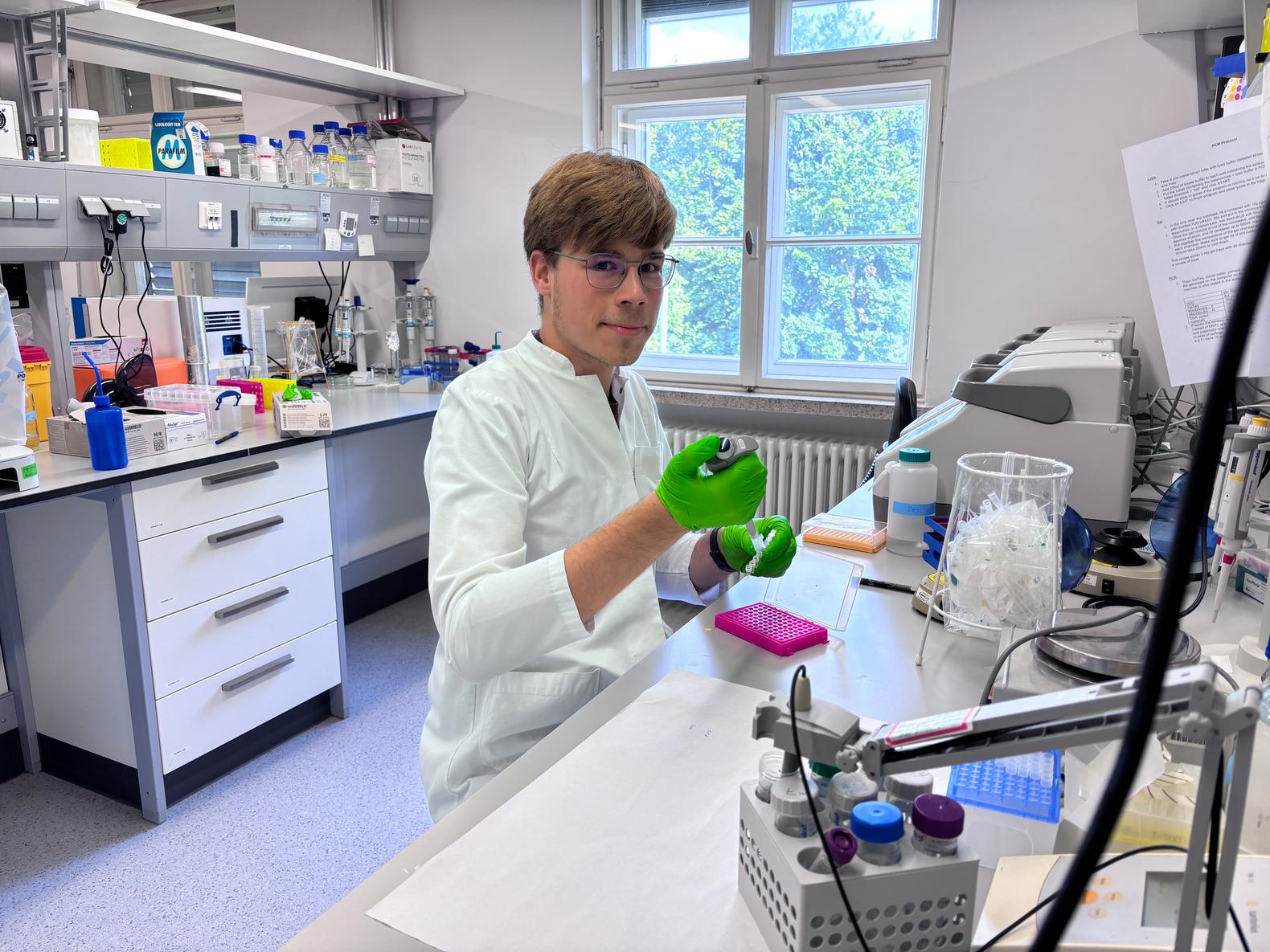Johannes joined the Misgeld Lab at the Institute of Neuronal Cell Biology at the TUM. His hands-on internship gave him insights into the research project of Lorena Olifiers, a PhD student investigating the role of mitochondria in neurodegenerative diseases. Lorena supervised Johannes and ensured he was introduced to all aspects of lab work: “It is always a pleasure to have such motivated and curious students around. From day one, Johannes showed reliability and was allowed to design his own experiments, whilst simultaneously helping me with my microscopy imaging. He also helped me strengthen my mentorship and communication skills. I am really excited to see what Johannes does in the future, and I have no doubt he will excel in whatever endeavor he chooses.”
When asked about his expectations for the internship, Johannes explains that he didn't have any specific ones. "I was just curious to find out what working in the lab would be like. I was pleasantly surprised to be allowed to do many things on my own right from the start. Honestly, I would have been pleased just observing others, so being able to take on tasks myself made the internship even better.” His days usually started with working with mouse or fish models and conducting experiments. After a collective lunch with the lab, the afternoon was used for further experiments, data analysis, or PCR tests.
“The internship provided me with a valuable overview of what it's like to work in a lab. I learned that the work is quite flexible; it's not just about pipetting—there's also the opportunity to work with mouse models, use microscopes, and conduct data analysis. You can plan your day in a way that suits you. However, I also learned that this flexibility is two-sided: you must be flexible. Sometimes, an experiment may not go as planned, so you must adjust your schedule accordingly.”
The team spirit of the lab appealed to Johannes the most: “Everyone is so friendly, with no hierarchies; it feels like we are all equals. You can really tell that people enjoy what they do.” This positive experience confirmed his choice to start a Bachelor’s in the field of biochemistry – a summer well spent.
About Jugend forscht
Jugend forscht is Germany's best-known competition for young scientists. It encourages and supports talented achievers in the areas of science, technology, engineering, and mathematics (STEM). It seeks to inspire young people to become involved long-term and, after the contest, to help them with their careers. Students from the 4th grade up to the age of 21 can participate. More information: www.jugend-forscht.de

